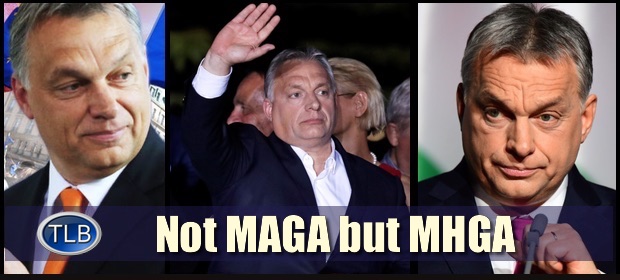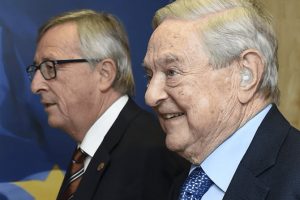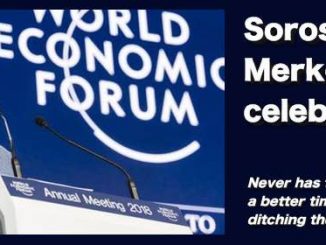
MAKING HUNGARY GREAT AGAIN
Prime Minister Viktor Orbán initiates family-strengthening initiatives
MARTINA MOYSKI
In the center of Europe, Hungary has been creating and enacting family-centered policies that promote marriage, childbirth and families with lots of children since 2010, the year Viktor Orbán became prime minister.
Hungary’s family-centered policies are showing results. According to the National Catholic Register, the abortion rate in Hungary dropped 33.5% and marriage increased 43%. Divorce rates have also decreased by 22.5%.
This past February, Orbán announced a plan for new family assistance measures including:
- Preferential loans for family home purchases and newlyweds
- Income tax exemptions for women who raise at least four children
- Support for large families making mortgage repayments
- A three-year program to expand creche places
- A subsidy for large families purchasing a bigger car
According to Daily News Hungary, Hungary’s State Secretary for Family and Youth Affairs Katalin Novák was in Washington, D.C. recently sharing Hungary’s results and strategies, along with Hungary’s willingness to collaborate, with U.S. Director of Global Affairs at the Department of Health Human Services, Garrett Grigsby, and other senior U.S. officials.

Novák was also a featured speaker at the recent 13th World Congress of Families in Verona, Italy where she fleshed out details of Hungary’s comprehensive family plan scheduled to include perks for even grandparents and up to three-year maternity leaves for mothers.
The plan partially exempts families from mortgage repayments after the birth of the first child and grants up to 2.5 million forints (the basic monetary unit of Hungary) for purchases of new, seven-passenger vehicles for families with at least three children.
In sum, the Hungarian government will provide 300 million forints (approximately $1 million) to support the National Association of Large Families this year.
Last summer, Orbán delivered a resounding speech at the 29th Bálványos Summer Open University in Tusnádfürdő (a town of a majority of Hungarians in Eastern Transylvania, now part of Romania) that defended European Christian culture and the traditional family.
 Speaking as a Central European to other Central Europeans, Orbán offered a series of rights that speak to an “alliance of free nations,“ a position that often places Orbán at odds with President of the European Commission Jean-Claude Juncker and Hungarian-American billionaire George Soros.
Speaking as a Central European to other Central Europeans, Orbán offered a series of rights that speak to an “alliance of free nations,“ a position that often places Orbán at odds with President of the European Commission Jean-Claude Juncker and Hungarian-American billionaire George Soros.
These rights, or tenets, are published on the Hungarian government website:
The first is that every European country has the right to defend its Christian culture, and the right to reject the ideology of multiculturalism.
Our second tenet is that every country has the right to defend the traditional family model, and is entitled to assert that every child has the right to a mother and a father.
The third Central European tenet is that every Central European country has the right to defend the nationally strategic economic sectors and markets which are of crucial importance to it.
The fourth tenet is that every country has the right to defend its borders, and it has the right to reject immigration.
And the fifth tenet is that every European country has the right to insist on the principle of one nation, one vote on the most important issues, and that this right must not be denied in the European Union.
Further girding “the traditional family model” by granting an unborn child constitutional protection, the Hungarian Constitution (Article II) states:
“Human dignity shall be inviolable. Every human being shall have the right to life and human dignity; the life of the fetus shall be protected from the moment of conception.”
Orbán points out that Hungary’s focus on family is a “reflection of Hungary’s Christian roots.” Saint Stephen (István király), Hungary’s first king, brought Christianity to the region around 1000 AD. According to 2017 Pew Research, Hungary, along with Poland, Lithuania and Croatia, represent Catholic majority nations in Central and Eastern Europe.
Every European country has the right to defend its Christian culture, and the right to reject the ideology of multiculturalism. Tweet
At the geographic gateway between Europe and Asia, Hungary represents the first country entered or exited. This unique geographic situation helps explain Hungary’s history of occupiers and freedom fighting.
Péter Szijjártó, Hungarian minister of foreign affairs and trade, said in a recent interview:
Hungarian people are freedom fighters. We had to fight for our freedom throughout our history many times — in the 1956 revolution when we fought against the communists, or we can remember from the history books a long period of time when the (Ottoman Turks) have occupied Hungary. So, we had to fight for freedom so many times in our history that we really, really respect, and we really can value freedom and liberty.
Orbán’s references to Hungary’s Christian roots and adherence to family values often evokes ire and criticism from European Union headquarters in Brussels. In a recent interview, Orbán said: ”I am not concerned about the Brussels trials. … My grandmother taught me to be humble in adversity. I must put up with all of this. I can do nothing but place myself in God’s hands.”
Orbán launched his party’s European Union Parliament elections campaign in Budapest on April 5.
“Hungarians, who have been protecting Europe for a thousand years, want the EU, but we are fed up with the way things are going in Brussels,” he said.
The European Parliament elections will run from May 23–26 this year.
(ER: Orban won an astonishing 56% of the vote in these EU elections.)
************
Original article




